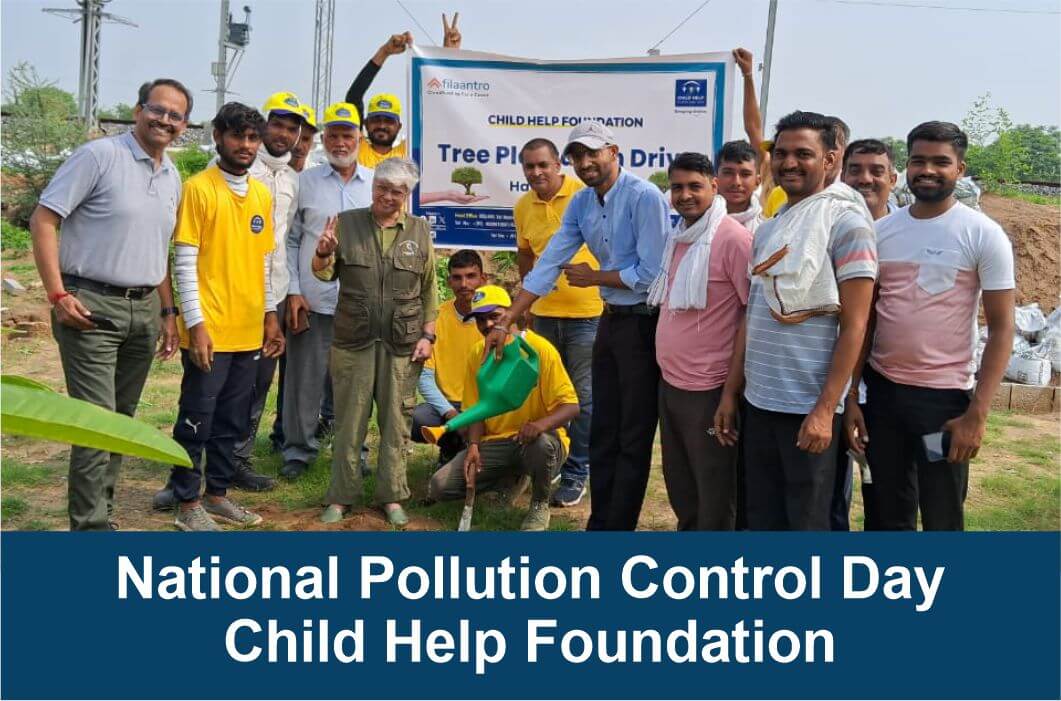National Pollution Control Day is observed annually on 2nd December in India to commemorate the lives lost during the tragic Bhopal Gas Tragedy of 1984. This day serves as a solemn reminder of the catastrophic consequences of industrial negligence while emphasising the need for robust environmental policies and pollution control measures.
The Bhopal Gas Tragedy, regarded as one of the world's worst industrial disasters, resulted from a gas leak at the Union Carbide pesticide plant. The release of methyl isocyanate into the air caused thousands of deaths and left long-lasting health and environmental impacts. In honour of the victims, National Pollution Control Day also acts as a call to action for individuals, industries, and governments to adopt sustainable practices and reduce environmental degradation.
The Significance of National Pollution Control DayPollution remains one of the most pressing global challenges. It adversely affects air, water, and soil quality, severely threatening human health, wildlife, and the planet's overall well-being. In India, where rapid urbanisation and industrialisation have amplified pollution levels, addressing this issue is critical.
National Pollution Control Day aims to:
- Raise Awareness: Educate citizens about the dangers of various types of pollution, including air, water, and soil pollution, and their detrimental effects.
- Promote Sustainable Practices: Encourage the adoption of eco-friendly technologies, waste management solutions, and renewable energy sources.
- Strengthen Environmental Policies: Advocate for stricter regulations to mitigate pollution and enhance environmental conservation efforts.

Initiatives for Pollution Control
On this day, governmental and non-governmental organisations across India conduct awareness campaigns, workshops, and cleanliness drives. Schools and universities organise essay writing, poster-making competitions, and debates to engage the younger generation in environmental conservation. Industries, too, are urged to adopt cleaner production technologies and comply with environmental standards.
Notable efforts like the Swachh Bharat Abhiyan and the promotion of electric vehicles are testament to India’s commitment to combating pollution. Additionally, technological innovations such as air purifiers, sewage treatment plants, and carbon capture systems are significantly reducing pollution levels.
What Can You Do?As individuals, our small steps can lead to significant changes. Here are some ways to contribute to a cleaner environment:
- Reduce, Reuse, Recycle: Minimise waste generation and manage it responsibly.
- Switch to Sustainable Transport: Opt for public transport, carpooling, or cycling to reduce vehicular emissions.
- Conserve Energy and Water: Simple habits like switching off unused electrical appliances and fixing leaks can conserve valuable resources.
- Plant Trees: Trees act as natural air purifiers and play a vital role in combating air pollution.
National Pollution Control Day is a poignant occasion that reminds us of our collective responsibility to safeguard the environment. By adopting sustainable practices and supporting policies prioritising environmental health, we can honour the victims of past disasters while ensuring a cleaner, greener future for generations to come.
Child Help Foundation actively contributes to environmental conservation under the UN Sustainable Development Goals (SDG 14 & 15). We work tirelessly to restore and protect natural ecosystems through initiatives like tree plantation drives, beach cleaning activities, and environmental awareness programmes. On the occasion of Foundation Day Child Help Foundation, planted more than 3000 trees across India. Let us commit to reducing our ecological footprint and being conscientious stewards of the Earth
Together, we can make a difference.
